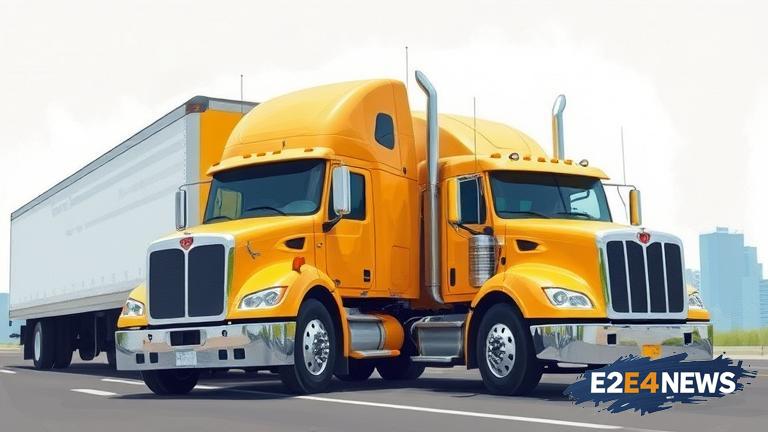The introduction of a new contractor bill has sparked interest in the trucking industry, as it may potentially open doors for safety technologies to be integrated into leased owner-operator trucks. This development could have significant implications for road safety, as safety technologies have been proven to reduce the risk of accidents and improve overall driving conditions. The bill, which is currently being considered, aims to provide a framework for the adoption of safety technologies in the trucking industry. If passed, it could lead to a significant increase in the number of leased owner-operator trucks equipped with advanced safety features. These features may include lane departure warning systems, automatic emergency braking, and blind spot detection, among others. The integration of these technologies could help to reduce the number of accidents involving large trucks, which is a major concern for road safety advocates. According to statistics, large trucks are involved in a disproportionate number of fatal accidents on the nation’s highways. The use of safety technologies could help to mitigate this risk, and the proposed bill may provide the necessary impetus for their adoption. The trucking industry has been slow to adopt safety technologies, due in part to the high upfront costs associated with their implementation. However, the long-term benefits of these technologies, including reduced maintenance costs and improved safety records, may outweigh the initial investment. The proposed bill may also provide incentives for trucking companies to adopt safety technologies, such as tax credits or other forms of financial assistance. This could help to level the playing field for smaller trucking companies, which may not have the resources to invest in safety technologies on their own. The bill has been welcomed by safety advocates, who see it as a major step forward in the effort to improve road safety. However, some trucking companies have expressed concerns about the potential costs and logistical challenges associated with implementing safety technologies. Despite these concerns, the proposed bill has the potential to bring about significant improvements in road safety, and its passage could be a major milestone in the effort to reduce the number of accidents involving large trucks. The bill is currently being considered by lawmakers, and its fate remains uncertain. However, if passed, it could have a major impact on the trucking industry and the nation’s roads. The use of safety technologies in leased owner-operator trucks could become more widespread, leading to a reduction in accidents and improved road safety. This, in turn, could lead to a reduction in the number of fatalities and injuries on the nation’s highways, which is a major goal of road safety advocates. The proposed bill is a significant development in the effort to improve road safety, and its passage could be a major step forward in this effort.
